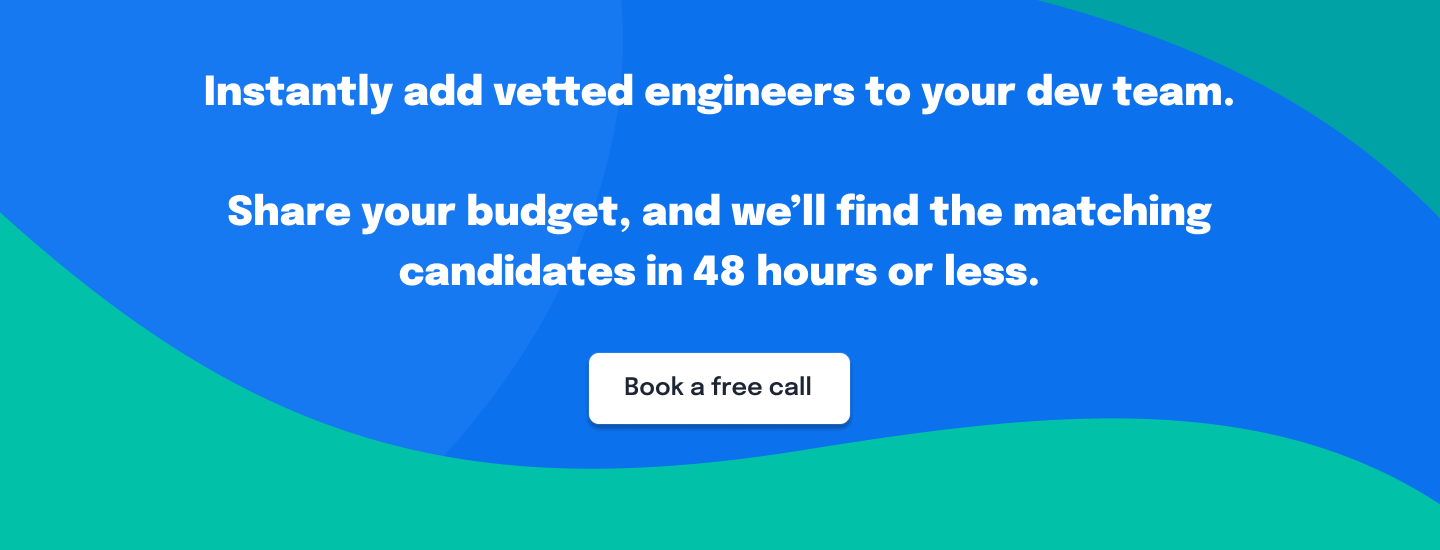Empowering you to make the best decision for unique circumstances
While it is true that every developer and software architect who works with either Node.JS, PHP or both, has an opinion about which environment they prefer to work with, we need to make sure that this subconscious bias doesn’t translate into the selection of a suboptimal technology stack. For example, Node.js vs.PHP is a common topic of discussion when choosing the environment or programming language for back-end development.
The challenge is that we need to consider so many selection criteria before finalizing our tech stack. The importance that we give can depend on the product we are developing.
Even though both Node.js and PHP allow server-side scripting, there are some variables we need to consider as part of the process include:
- Ease of Coding a particular feature set
- Performance Handing (Speed of Application)
- Budget
- Deadlines
- Technical Risk
- History of similar projects implemented
- Load handling
- Developability of particular functionality
- Resources available on the labor market, both for development and support
- Scalability in both product architecture and your providers (software development vendor)
- Learning difficulty
- Available documentation
Node.js vs. PHP Performance
PHP vs. Node.js: the Overview
Node.js
Node.js is a JavaScript runtime environment used to build scalable network applications. Ryan Dahl launched Node.js in 2009, and it quickly gained popularity for web-application development. Such companies use it as LinkedIn, Netflix, and Medium.
PHP
Contrary to Node.js, PHP was around from 1994 created by Rasmus Lerdorf. It is an open-source server-side scripting language widely used for e-commerce and CMS (such as WordPress and Contentful alternatives) websites due to its built-in functions and libraries. In addition, PHP has a huge code base for content management systems and different frameworks, such as Laravel or Symfony.
Synchronous vs. Asynchronous
Node.js
Node.js is non-blocking and asynchronous, making a development process faster, as many events can run simultaneously. Node.js is based on the Google Chrome V8 engine that allows fast performance. It is suitable for writing real-time applications. You can develop a highly scalable server app that increases your server’s CPU. However, when a heavy request comes, all available CPUs will process it first, and that can cause a delay in the event loop.
PHP
PHP is synchronous and follows a client-server model where a file request initiates the application, and there is a waiting period for the system to process the file. If one function or module is not executed, the other in the queue will not be completed. Of course, PHP 7 is faster than PHP 5, but it still loses to Node.js in speed.
Flexibility
Node.js
There are a lot of frontend applications that are created with JavaScript. Programmers find it beneficial to use Node.js for back-end development when the frontend is written with JavaScript programming language. If you choose full-stack developers who can write in JavaScript, you no longer need to switch between technologies. JavaScript also powers many frameworks such as React, Angular, and Vue, which brings many benefits if using Node.js for server-side scripting. Such a combination reduces maintenance costs and allows faster detect bugs. Node.js can also work with such NoSQL databases as MongoDB or CouchDB. Besides, the Node Package Manager greatly helps programmers develop web apps quickly.
PHP
The syntax of PHP is well-organized. There are basic coding principles, but PHP is still easy to learn and work with. PHP was designed to work with such databases as MySQL and MariaDB, where MySQL is the most used database. However, PHP can support connections to other databases, e.g. Microsoft SQL, or SQLite. It is also compiled with frameworks like Codeigniter, Laravel, and CakePHP.
A High-Level Comparison of Node.JS vs. PHP by Mariia Tintul – Director of Business Development of Lenal EU
The following is a table that compares PHP vs. Node.js across the following parameters:
- Processing Speed
- How long each language takes to learn
- Availability of Documentation and relative strength of the Developer Community
- Configurability
- Functionalities and applications for each language.
| Parameter | Node JS | PHP |
| Processing Speed | For standard processing, PHP is faster because it operates on Apache/Nginx servers. | If you have a large amount of data being transferred and cached, Node performs much better because it has better compatibility with HTML5 and Ajax.
There are also options with PHP which make it faster. |
| Overall | Even the most demanding PHP developer rarely worries about speed, but Node.js performance is generally a bit better. | |
| Learning these languages | Node is a tiny bit more challenging to understand how it works. Still, it’s based on JavaScript, an easy language.
Like some of the PHP frameworks, there are a lot of ready-made solutions for use on the internet. |
PHP is the easiest way to learn web development.
It has a significant knowledge base on the internet. |
| Watch out! | Because both languages are easy to pick up and develop, leading to inferior development practices. That is an all too common situation. | |
| Documentation & Developer Community | Both languages have almost all the documentation you will ever need on the internet. | PHP has a more extensive library of instructions and frequently asked questions (there have been plenty over the last 20 years)
The PHP developers community is a massive and diverse group of people who constantly revisit and update libraries, frameworks, and other PHP components. |
| Overall | PHP has the advantage of having a knowledge base built up over decades. So it is less likely you won’t be able to find support on something uncommon or “impossible to solve.” | |
| Configurability | Node.js requires more code. To code on Node.js, you have to understand events like callback functions and blocking | It’s more accessible to configure the development environment for PHP. |
| Applications of each Language | The asynchronous and event-based architecture of Node.js makes it an excellent fit for RTA (Real-Time Applications) such as:
|
A standard set of features that need to be implemented are well established in PHP and doesn’t take a lot of time, for example:
|
| Creating APIs | This language has so many frameworks (with bundles) and CMSs that it’s simply easier to create ordinary web entities using it. | |
| Publish-subscribe architecture makes it easier to process data from IoT (Internet of Things) and SPAs (Single Page Applications) involving highly flexible, dynamic, and rich client-side functionality. It’s a fast way to push things to the front-end on production. | If you are using a relational database, like the traditional MySQL, Oracle, or SQL Server. | |
| If it’s about streaming or colossal data transfer, go for Node.js. | And, for other project types, PHP can be better for cost and maintenance because it has more developers available. | |
Conclusion
The bottom line is that it is essential to know the architecture beforehand to select the most appropriate framework and language for the development of your application.
The above table only covers some of the dozens of parameters to consider when choosing between Node.JS and PHP. In addition, you may read our other articles about hiring a Node.js developer and PHP developer, where you will learn about developers’ salary rates, possible hiring models, and the advantages of hiring the developer with that stack.
About Mariia

Mariia is leading the international direction in LENAL. She took a significant part in creating the main sales, partnerships, and PR/marketing strategies in a number of companies. Moreover, Mariia is training sales interns and broadening the network of Clients and Partners all around the globe.







